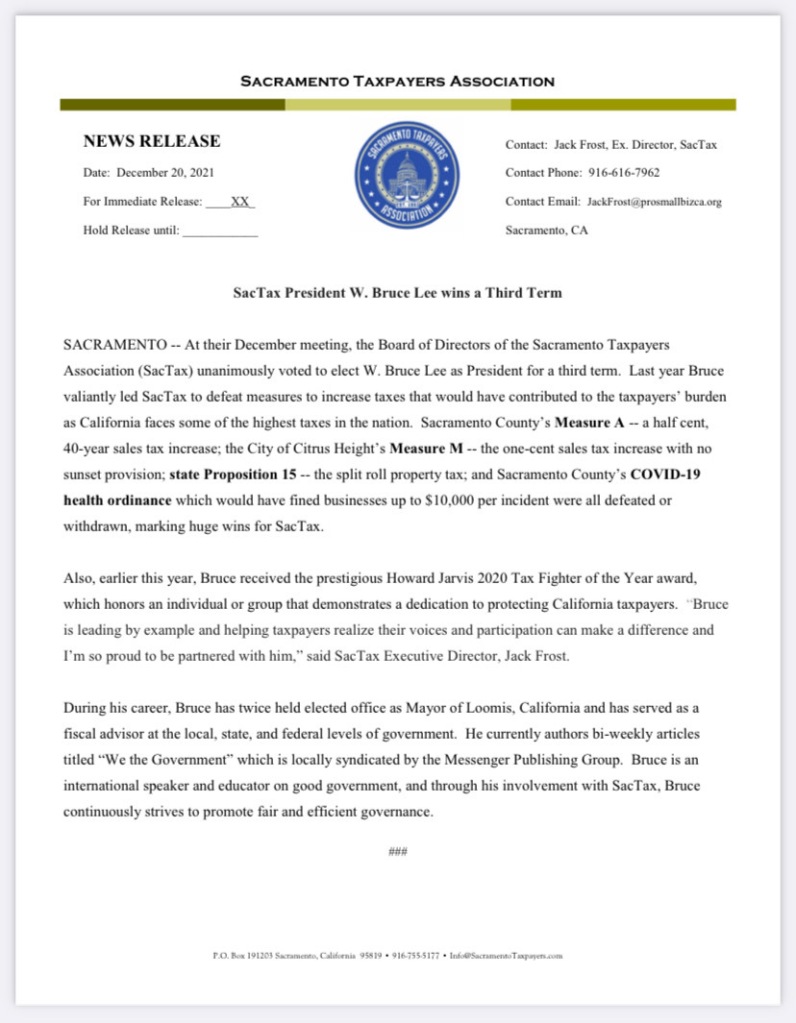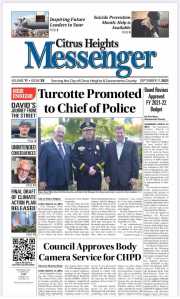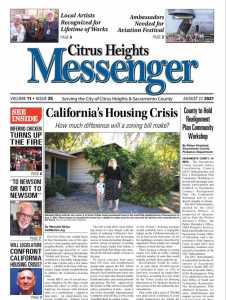Day of Reckoning
As all parents or adults, we have daily needs – grocery, shelter, transportation, repair bills, electricity to keep the lights on plus a host of other things. And, occasionally you feel the desire to splurge – maybe a weekend getaway. Maybe we spend more than we can afford, but there’s always the credit card!
Eventually the debt builds grows, the budget stretches, and you make “interest only” payments occasionally; but even minimum payments on the credit card, at 8-18% interest, the amount owed balloons! But, it’s okay. That hoped for wage increase in six months will ease the burden. However, you know that you can’t continue this way and that eventually your debtors will require a “day of reckoning.” You pray that your lenders will simply forget about you!
Teaching personal finance at the university, I’ve seen it all – families struggling financially, having autos repossessed, inability to afford a home, debt burdens, and bankruptcy. They muse, “If only I had learned to live on a budget.” In fact, all states in the USA (expect Vermont) require a balanced budget! California, the sixth largest nation-state in the world, has a yearly balanced budget! (Though having worked for the Governor’s Department of Finance, sometimes the revenues might be bit overestimated and expenses underestimated – but still basically balanced.)
Hopefully you’re aware that the United States has no requirement to balance its budget. But, are you aware that the debt of the national government is your debt? As the citizen owners of our government we are also going into debt. And, are you aware of just how much debt the USA has?
USA debt has dramatically increased in the past 30 years and is currently $30.2 trillion ($30,200,000,000,000) and rising! Your individual fair share is $90,853!! And, we, our children, and grandchildren will be paying for that bill! Now, suddenly it’s not just a big number about a distant government – it’s about YOU!
And, this, $30.2 trillion does NOT reflect our unfunded liabilities that exceed $100 trillion, and that in less than ten years our interest on the debt will be $1 trillion a year (that’s interest only!)
At this moment, Medicare will be insolvent by 2026 and Social Security by 2030.
Again, this is a MASSIVE burden upon future generations, unless you think the USA government is somehow exempt from the basic rules of finance.
If you and I spent money so recklessly, you know that our “house of cards” would soon come tumbling down. Perhaps those from whom we (the US government) have borrowed won’t want their money back? Perhaps they’ll say, “Aw, shucks USA, that’s alright, you don’t have to pay me back?” Maybe. But then, again, some of us may still believe in the “tooth fairy.”
The immediate results of this debt is slower growth; compromised national security in an already very dangerous world; more of a gap between the haves and have not’s; increasing taxes from Washington; and the federal government will cut spending only to give more unfunded mandates to the states. Ultimately, taxpayers and the states will bear the burden.
Just as a lender looks at your financial ability to pay for a loan, or debt to income ratio, we can look at the financial stability of the USA by comparing our debt to our “gross domestic product or GDP” (the total of goods and services created by the US economy annually). It should normally be 30-40%. Today it’s 129% and growing. Is the day of reckoning upon us?
We’ll look at this debt ratio; our history of debt; who’s responsible; and solutions in upcoming columns. Check out https://youtu.be/da7nVxDzPfk .
W. Bruce Lee is an educator and speaker (WBruceLee.com) with a career in government as an elected official and fiscal advisor, who has worked at the local, state, and federal levels. He authors the “We the Government” column as a community service. He is president of the Sacramento Taxpayers Association (SacTax) – promoting efficient, economical government; fair and equitable taxation which permits a strong, healthy economy; as well as sensible balance and rational control of government expenditures.. His private message telephone is 916-624-6476.
Copyright W. Bruce Lee, 2023
SacTax News Release: Bruce Lee Wins 3rd Term as President

Is it possible?
This article was first published in print and online on November 19th in Bruce’s “We the Government” column. For more information about his biweekly syndicated column, be sure to read the introductory post here.
This column’s primary mission deals with citizen ownership and responsibility for our governments. However, at times I am asked if that just sounds good? Or, is it really possible? Are we “tilting at windmills?” Can you fight City Hall?
Today, I want to assure everyone that citizen ownership is absolutely possible, and I have real-world results to prove it. It takes effort and organization, but it is possible. Let me share a few illustrations to encourage us all!
2020 was a busy year for the Sacramento Taxpayers Association. SacTax was involved in a multitude of state and local issues, including Split Roll Property Tax and several local policy and tax matters (COVID fines on businesses, changing the election cycle of the county sheriff, and the Sacramento strong mayor initiative, etc.). The result was that billions of unnecessary tax dollars were saved!
Of particular significance, in the spring of 2020, we met head-on the Sacramento Transportation Authority’s proposal to increase the county-wide sales tax by a half percent for forty years. On July 15, 2020, after months of working on this tax increase in the middle of a pandemic, the Authority reluctantly withdrew its November 2020 ballot measure. Most notable to me was literally the very last comment in the report:
“(S)hould any organized opposition materialize, the measure will not be viable (on the November ballot).”
Dear co-owners of our government, we were the “organized opposition!” And, we had a resounding success.
Then in August 2020 (after pleading with the Citrus Heights City Council to reconsider placing Measure M on the November ballot to raise their sales tax by one percent with no sunset date) we faced another new battle. The Council was intransigent – arrogantly confident that voters would easily approve their tax increase as the Council’s consultants assured them that polling showed the measure being adopted by well over 70 percent.
The City Council scoffed at us – confident in their ability to call in over $50,000 of “pay-to-play” vendor money to push Measure M across the winning line, as well as spend thousands of public city dollars in multiple citywide mailings to every household – all proclaiming the merits of Measure M in so called “educational mailings.”
It was all very daunting … but SacTax rolled up its collective sleeves and organized a “No on M” task group. With a total of about $7,000 (from small donors) plus hundreds of coordinated hours of volunteer time and help from community leaders, in two months the citizens sent this “ugly pig” of a tax measure to its rightful grave by approximately 2,000 votes (or 52.45%).
Again, friends, we were “the organized opposition,” with another resounding success!
In fact, if you look at all of the local tax increase and bond measures placed before Sacramento region voters in November 2020, they all passed – except for the ones SacTax actively opposed.
There is an important lesson here, we did not have to burn down buildings or destroy businesses. We did not have to deface or tear down any monuments. All we had to do was be well organized; upfront; use sound logical arguments; make our concerns known; and educate citizens. All we had to do was put leadership into practice and encourage our citizens in exercising ownership over their governments.
We had to shed light on important topics; allow government officials to realize that we must all be good stewards of public dollars; and realize that “business as usual” was not acceptable.
Lesson learned – our democratic, republican form of government works when we collectively take responsibility for it! Together, we make a difference!
The Reluctant Candidate
This article was first published in print and online on November 5th in Bruce’s “We the Government” column. For more information about his biweekly syndicated column, be sure to read the introductory post here.
Ever notice that we treat our elected officials very kindly? We call them the “Honorable.” We stand when they walk in. We ask them to sit at the head table. We may curry favor with them for future gain. However, while we should absolutely treat people kindly and with respect, we may be planting the seeds of our own problems with this underlying deference!
Electeds begin to think “I’m all that, plus a bag of chips!” You see, they begin to believe their own public relations messaging. Within the State Capitol we call it “memberitis”. Per Matthew 23:6, “They love the place of honor at banquets and the most important seats in the synagogues.” They think they are “hot stuff”, rather than simply as our elected employees – which is how we should treat them. Respectfully, honestly, but as our employees who we hold accountable as their employers.
The result of this favorable treatment is we have people running for office for all the wrong reasons! Not everyone, but many seek fame, ego, power, or privilege, rather than run as a public servant. Asking candidates why they are seeking office, some have candidly admitted to me, “I’m not sure why.” They know that it may be unlikely for them to win – but simply running brings exposure and notoriety. It’s almost a game.
Then, if elected, do they know why they are there? It’s unlikely they have any grounding in constitutional responsibilities or even basic managerial skills. They pursue whatever their imaginations conceive and frequently have NO sense of priorities. This explains recent laws from the State Capitol that makes it illegal to remove condoms during intercourse without mutual consent, or restaurants to offer small packets of condiments (e.g. mustard).
I recently relayed an observation to a reporter from my years as a local elected, “Being elected does not mean that you are necessarily intelligent!” He laughed and laughed in agreement … almost as the child who declared that, “The emperor has no clothes!”
Of course, everything is on a continuum. I have met bright and dim electeds. But, we pull our candidates from the general population. So, if the average person is just bumbling through life trying to figure it out, then our candidates and ultimately electeds are doing the same thing!
Hence, my “Thesis of the Reluctant Candidate”: the most reluctant candidate out of a group of candidates may be the best candidate. Take ten people who are asked, “Who wants to be Mayor?” Nine shout, “Oh, me, please me, I really want to be Mayor!!” They jump up and down trying to be picked – and this is not an unrealistic scenario. Now, I wonder why are they so eager to be in power? And, if so eager to gain power, won’t they be eager to stay in power – to do whatever it takes to play the political games to win again and again? (I have been in the backrooms where electeds contrive to manipulate offices so as to stay in power.)
By contrast, the reluctant candidate may say, “Well, damn, I really have other things to do, but I guess I could serve for a term as a public service.” I’d argue that may be the better candidate. They are not in it so much for ego or personal gain.
The lessons for citizens as owners of our government are as follows. We need to inspire the highest quality of candidates. We should look for the necessary qualifications in deciding for whom to vote. And, finally, we must treat our electeds with respect, but treat them as our employees!
Unintended Consequences
This article was first published in print and online on September 17th in Bruce’s “We the Government” column. For more information about his biweekly syndicated column, be sure to read the introductory post here.
Driving by a local Chick-fil-A recently, I was surprised to see their largest sign (30 feet in the air) proclaim $17 per hour as their starting wage! The restaurant’s premium ad space was not directed to customers, but to potential employees!

Wow, that’s $4 an hour over the $13 minimum wage if 25 employees or less ($14 if over 25 employees). $35,000 a year for unskilled labor – that’s more than some teachers make. I don’t think the Chick-fil-A prices have increased much, so this small business’s bottom line is being squeezed.
At a local Denny’s, I called to reserve a table and was told that they close at 5pm because they had no employees! What? Yes, the manager advised. “We need 30 employees, but only have ten. We can’t find anybody to work.”
I related the Denny’s experience to a friend, who said, “It serves them right. These big corporations don’t pay a livable wage to workers to risk their life with Covid!” I explained that this Denny’s is a franchise (a small business owner who I know) and Covid barely impacts younger, healthy people.
Clearly, the lack of employees has become a big thing for many businesses! Remember Costco food samples by Club Demonstration Services (CDS)? A highlight of my Costco visits! They stopped with Covid, but they’re back, in limited number. A CDS employee advised that they need 25 servers at Folsom, but could only find five, and one of those drives 36 miles from Jackson – one way!
Kathrin Grosse, a German immigrant, started Kathrin’s Biergarten in Rocklin in 2017, says the employee shortage for she (and vendors she depends on) is extremely stressful — working herself and family to death while not knowing what business hours she can keep open due to staffing. “Soon people will not know how to work anymore and feel entitled. And, when I’m closed, it hurts my people who want to work!”
Here’s the thing, basic unemployment is about $400 per week (it ranges $40-$450), and the Federal Pandemic Unemployment Compensation (FPUC) provides $300 weekly. That’s $700/week, $2,800 a month, or $36,400 a year!
A manager of a Tahoe breakfast restaurant was blunt: “Not everyone wants to come back to work. If you work, you make $3,000 to $3,500 plus a little extra tip income. But, if I can make $2,800 a month, why bust my ass, I’ll stay home!”
The lesson is that government interference with the economy is a delicate balance (from “laissez-faire” to “command and control”) and almost always creates “unintended consequences.” Working years in the Governor’s Finance, I was briefed on these matters. For example, Proposition 13 reformed taxes, but that created other problems, so we did something else…which created new consequences, so we tried another thing, and so forth. The current FPUC extension ends Labor Day, but it could be extended to 2022 (per rumors as of this column submission).
Government tends, with the best of intentions, to bumble along. Nobody thought the FPUC payments would stifle employment by creating a worker dependency upon government money – disincentivizing employment. Politicians were being “nice.” But the “politics of niceness,” as I call it, creates problems. Bureaucrats who live thousands of miles away cannot predict all consequences. And, their “one shoe fits all” approach seldom works well.
Hence, decentralized decision making is usually the best approach. Local decision makers are in-tune with local circumstances. And, better yet, the most decentralized process is to provide reliable information to citizens and let them make the best choices for themselves! In this way, we have liberty, as well as healthy decision making.
Decentralized government to practical extent is an important protection of our unalienable rights. This is the sixth principle in my list of founding principles of our America. This is why Thomas Jefferson wrote in 1811, “(T)he true barriers (defensive walls) of our liberty in this country are our state governments …”
To Newsom or Not to Newsom
This article was first published in print and online on August 27th in Bruce’s “We the Government” column. For more information about his biweekly syndicated column, be sure to read the introductory post here.
Governor Newsom’s recall election concludes September 14, and the rhetoric is heating up, so it’s important to carefully evaluate what’s being said! We will see more political advertisements bombarding us!

The first ad I saw was the rapid-paced Newsom’s “Roaring Back” blitzkrieg. It starts with, “Newsom is delivering money to your pocket!” It continues … $1,100 in your pocket, plus $500 if you have children (Covid relief). It then proclaims he delivered $4 billion in small business grants (again Covid). A couple projects by Newsom are mentioned and it ends with “Free Pre-K” for every child!!
Honestly, my first reaction was that Newsom is paying us to vote for him. Money for everyone! However, most of that money is federal money and all of that money is taxpayer money.
The other ad I viewed was US Senator Elizabeth Warren (D-Massachusetts) “Here’s the Deal” declaration. “Republicans across the country are attacking the election results and the right to vote.” And, she asserts, these same evil forces are attacking California in a power grab. This “Partisan Recall” is “abusing the recall process,” Warren declares!
How so, I wonder? How is the process being abused? The process was laid out in state law for anyone to use since 1911.
Since 1913, eleven recalls have qualified for the ballot (of 179 attempts) and six were successful per the Secretary of State. Of those six, three republicans and three democrats were recalled. That doesn’t seem too partisan. And, if this is such a partisan power play, why is Warren from Massachusetts doing the ad and not one of our two US California Senators (both democrats)? Other Newsom ads speak of “anti-science republicans” and other guilt by association smears.
And, by the way, if you ask who is funding the Warren ad, it’s Reed Hastings (Netflix founder/CEO) who was also on the board of Facebook; the Service Employees International Union #215 (state employees union); and the California Democratic Party.
Newsom blasts the $276 million cost of the recall, which is a lot of money. However, that pales with other state expenditures, such as the proposed $1 billion being foisted by the legislature to tear down and rebuild the Capitol annex so legislators can have new luxury offices! The recall is a legitimate expense of citizens exercising ownership over their government. The Annex is just the legislators padding their own chairs!
There are approximately 22 million registered voters in California. About 24.2% are republicans, 46.1% are democrats, and 24% have no party preference. To gather the 1.5 million signatures to qualify the recall (1.6 million were collected), I am confident that there were a few democrats mixed in the petitions. And, last spring when Newsom touted the 30 day period when people could retract their signatures … less than 50 did so. How embarrassing!
In an August 2-4, 2021 statewide poll for the San Diego Union, 51% favored recalling Newsom (up from 36% in May). Only 40% wanted to keep him (down from 47% in May).
Now, you may like or dislike Newsom, and I’ll keep my opinion to myself, but I can confidently predict the recall is not about partisanship, but perceived performance by the voters.
If voters do recall Newsom, we have 46 replacement candidates, most of whom are useless, “vanity candidates” who clutter the names of the six or seven serious candidates. Yes, with $4,200 and 65 friends, you, too, could have run for governor! Please don’t waste your vote on a lost cause candidate, the issues are too important. Just be glad we don’t have the 135 candidates as we did in 2003 with the Gray Davis recall.
Be skeptical of advertisements. Beware of what is promised but unproven! Come to events, such as our SacTax (Sacramento Taxpayers Association) interviews with Governor candidates this year. Be informed and intelligent. Exercise ownership over our governments. These recommendations will make each of us better citizens!
Bruce’s “We the Government” Column
Beginning in August, Bruce started writing a bi-weekly editorial column called “We the Government” for a publishing group of over nine newspapers distributed across Northern and Central California.

It is both an honor and a great responsibility to be provided a platform that reaches over 500,000 readers, one that Bruce doesn’t take lightly. In addition to offering useful, less covered, insights into regional, statewide, and federal politics and business, Bruce hopes to empower the region’s citizens to get involved with their governments at the local level. His years of experience in politics and business provide him with unique insights into how to be effective change makers, and it starts with taking responsibility for how our communities are governed, hence the title of the column, “We the Government.”
Please see below for the first article published in the “We the Government” column, and be sure to check back or subscribe for future publications.
We The Government
“WE THE PEOPLE” begins the Preamble of the US Constitution … signed September 17, 1787 and ratified June 21, 1788. The preamble is a brief introductory statement of the Constitution’s core purposes and guiding principles.
Thanks to the vision and sacrifice of the founders who established our constitutional republic – we have a nation which is founded on ideals and not personalities. There was no king, no tribal chief, no dictator, no military general, it was “We the People” ruling ourselves.
However, many of us do not consider the obvious next step is that “We the People” also means “We the Government”.
For many of us in our daily lives, we think of the government as a “them”. They are telling us what to do. They are taking our money through taxes. They are being fair or unfair. They are not doing enough or doing too much!
But actually, the government is us! We have nothing to complain about … unless we are complaining about ourselves. We get exactly the government we deserve. If we do not like our government, it is our own fault. Now that may sound harsh and blunt … but ultimately it is true.
Therefore, we cannot simply treat our government as something to sneer at, but rather we must treat it as something we own! Because we do. We own our government. And, we must exercise our ownership over our governments – local, state, federal, and otherwise.
However, as owners, many of us have delegated too much authority to our employees – those employees being our elected officials. And, that is precisely what elected officials are – our employees. They are accountable to us, the owners, the citizens. We owe them courtesy and respect, as we should do with all people. But, they are our employees.
Moreover, while some have delegated too much authority; worse yet, some of us have abdicated our authority to these employees! We become absentee owners who in our minds have let the employees become our masters and we the servants. (Remember, we call them “Public Servants”.) But abdication breeds an erosive attitude of, “I am not responsible for my community or my life; they (the government) are responsible.” Personal responsibility becomes diminished and government responsibility is enlarged. As an elected official, how many people came to me to complain about this or that … but when I asked them if they voted in the last election, their reply would be, “No, I was too busy.”
In light of this collective complacency, this ongoing “We the Government” column is dedicated to empowering citizens to exercise healthy ownership over their governments. And, being a responsible owner … a responsible citizen means that we must care, be informed, be good decision makers, and be involved! And, I know that sounds like a lot of work and that we are all busy, but remember what we have to lose – liberty, choice, freedoms. We have a unique, remarkable society – the envy of much of the world.
Remember, left to its own, everything declines and dies. A rolling ball on the ground stops. A flourishing business goes idle. A marriage fails. A government morphs into something hideous. Energy must be invested to keep the ball rolling, the business fresh, a relationship full of love, a government on track to be the servant of its citizens.
The good news is that our forefathers paid the biggest price to start our constitutional republic, and we only have to keep it going. The ball on the ground must be kicked hard to make it roll, but once rolling only a little more energy is necessary to keep it moving in the correct direction. And, as Helen Keller observed, “The world is moved along, not only by the mighty shoves of its heroes, but also by the aggregate of tiny pushes of each honest worker.”
We do not have to be a hero to keep our community sound, but all of us must work together with each of our “tiny pushes”. If you are interested in learning more about how to preserve our freedoms and become “We the Government,” I look forward to continuing our conversation in upcoming articles for this column.
I’ll be sharing information about local organizations, such as the Sacramento Taxpayers Association, that are empowering citizens locally; practical steps about how to hold our government leaders accountable; and lesser know political news that has major implications for our local freedoms. In the meantime, stay hopeful and keep carrying on our torch of liberty!
Bruce Named “Citizen Advocate” of the Year
Bruce was recently named California’s citizen advocate of the year from the prestigious Howard Jarvis Taxpayers Association.
He was recognized for the work accomplished as the President of the Sacramento Taxpayers Association (SacTax). Under Bruce’s leadership SacTax achieved a number of majors policy wins for the great citizens of the Sacramento region. These included:
- Measure A – A Half Percent 40 year Sales Tax Increase in Sacramento County – WITHDRAWN
- Measure M – One Percent Forever Sales Tax Increase in Citrus Heights, CA – DEFEATED
- Proposition 15 – Split Roll Property Tax – DEFEATED
- Proposition 21 – Increased Local Government Rent Control Authority – DEFEATED
- Change of Election Cycle for County Sheriff, District Attorney, and Tax Assessor – DEFEATED
- COVID-19 Enforcement Fines of up to $10,000 on Business Within the County – WITHDRAWN

Bruce considers it a privileged to serve his fellow citizens, and it was a very humbling gesture to be recognized for his work. He received the award with tremendous gratitude!
20 Life and Financial Principles for a Better Future

These are a few principles gleaned from personal experience, years working as a business consultant, and from my experience as an advisor in the Governor’s Finance for the State of California. If you take the time to read through and apply even a few of these principles, I’m sure you’ll see positive results in your life!
1) Manage your life, rather than let your life manage you.
2) Track your income and expenses – without that, all else is just guessing.
3) Evaluate your financial decisions and purchased based on your “Return on Investment.”
4) Manage your risks to achieve your end goals (use savings or insurance, etc.).
5) Know your goals – they help you to keep your focus.
6) Money does not behave like math.
7) Spending wisely – (i.e.: rent versus buying).
8) Maintain balance in your life.
9) Know how to generate revenue.
10) The world is a complex place. By the time you hear of the “good deal”, it’s likely too late.
11) Character impacts us and others.
12) Wealth only makes you more of what you already are.
13) If you see someone with a nice home, it means that they are likely doing something of value for their society.
14) Be a producer, in contrast to a consumer.
15) Your life financial plan is like going across an ocean in a general direction with the hope of finding a safe harbor which you cannot yet see. Many things, such as waves, storms, and poor choices will impact you as you negotiate your way. It is not like following a path through the woods.
16) Everything you do has financial implications – perhaps big, perhaps small.
17) Of the five major resources in life, you are always transferring one resource into the form of another resource.
18) Keep your maintenance costs low, and maximize assets you can invest in order to achieve a greater return on investment and build for the future.
19) Plan long-term. Maturing is sacrificing short-term satisfaction for long-term gains.
20) Discipline is a key element for almost everything.








